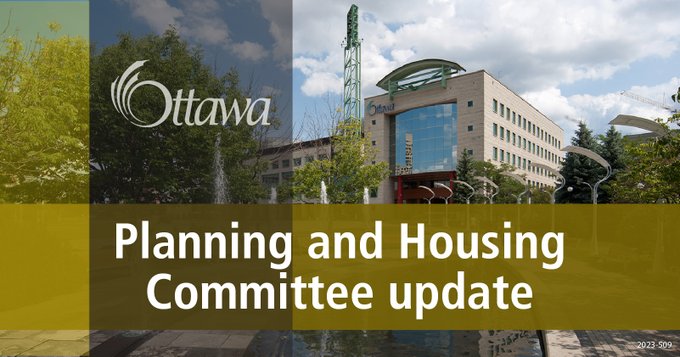On July 5, the Planning and Housing Committee approved the action plan portion of the City’s application for the Housing Accelerator Fund (HAF). The City anticipates receiving more than $150 million from the $4-billion federal fund, which aims to create more housing supply more quickly.
In line with Canada Mortgage and Housing Corporation (CMHC) requirements, the action plan identifies nine initiatives that seek to increase the number of building permits issued by at least 10 per cent over three years. CMHC will determine funding based on the number of dwelling units it estimates would be issued permits before September 2026 as a direct result of those initiatives, which include:
- Accelerating the disposal and preparation of City-owned lands for housing
- Implementing an affordable housing pipeline strategy
- Streamlining planning approvals
- Pursuing transit-oriented zoning amendments and inclusionary zoning
- Increasing zoning permissions to allow for multi-unit intensification
- Implementing an affordable housing community improvement plan
- Establishing an office-to-residential conversions pilot
- Preparing a new comprehensive zoning by-law
- Developing an on-site storm water management tool
After HAF funding awarded to the City is confirmed in July, staff will return to Council with a roadmap of next steps, including determining how the funding will be allocated.
The Committee also approved zoning amendments for several developments that promise greater density and new housing near LRT, in line with Ottawa’s new Official Plan. In Lowertown, the approved zoning would permit a 20-storey apartment building with 160 units at the north end of Friel Street. The Ottawa Community Housing building would have 32 accessible units, affordable options for rental units and privately owned park space. The amendment would reduce required parking for residents and visitors, and increase permitted height consistent with the Secondary Plan, which contemplates buildings up to 25 storeys at this location.
East of St. Laurent Station, the approved zoning would permit two 30-storey towers with 664 units at St. Laurent Boulevard and Lemieux Street. The amendment includes a seven-metre height increase that would allow for larger floor-to-ceiling heights but that is still in line with the current 30-storey limit. It also reduces minimum tower separation and several setbacks to accommodate the unique lot configuration. Near Cyrville Station, the approved zoning would permit a 188-unit, six-storey apartment building on Cummings Avenue. The amendment would change the site’s parent zoning and reduce resident parking while also increasing bike parking, to help encourage sustainable modes of travel.
The Committee approved a zoning amendment to establish interim provisions for renewable energy generation facilities, such as large-scale wind or solar power facilities. Under current rules, such facilities are considered utility installations and are permitted in many parts of Ottawa. The amendment is precautionary as the City has no plan to install wind turbines or solar panels nor is it aware of any plans from private interests to do so. The move would prevent such facilities where they are not supported by the Official Plan by adding a new definition for renewable energy generation facilities to the Zoning By-law while not listing it as a permitted use anywhere in Ottawa. That way, until revised zoning is established through a report this fall, a zoning amendment would be needed to build such a facility.
Recommendations from today’s meeting will rise to Council on Wednesday, July 12.



